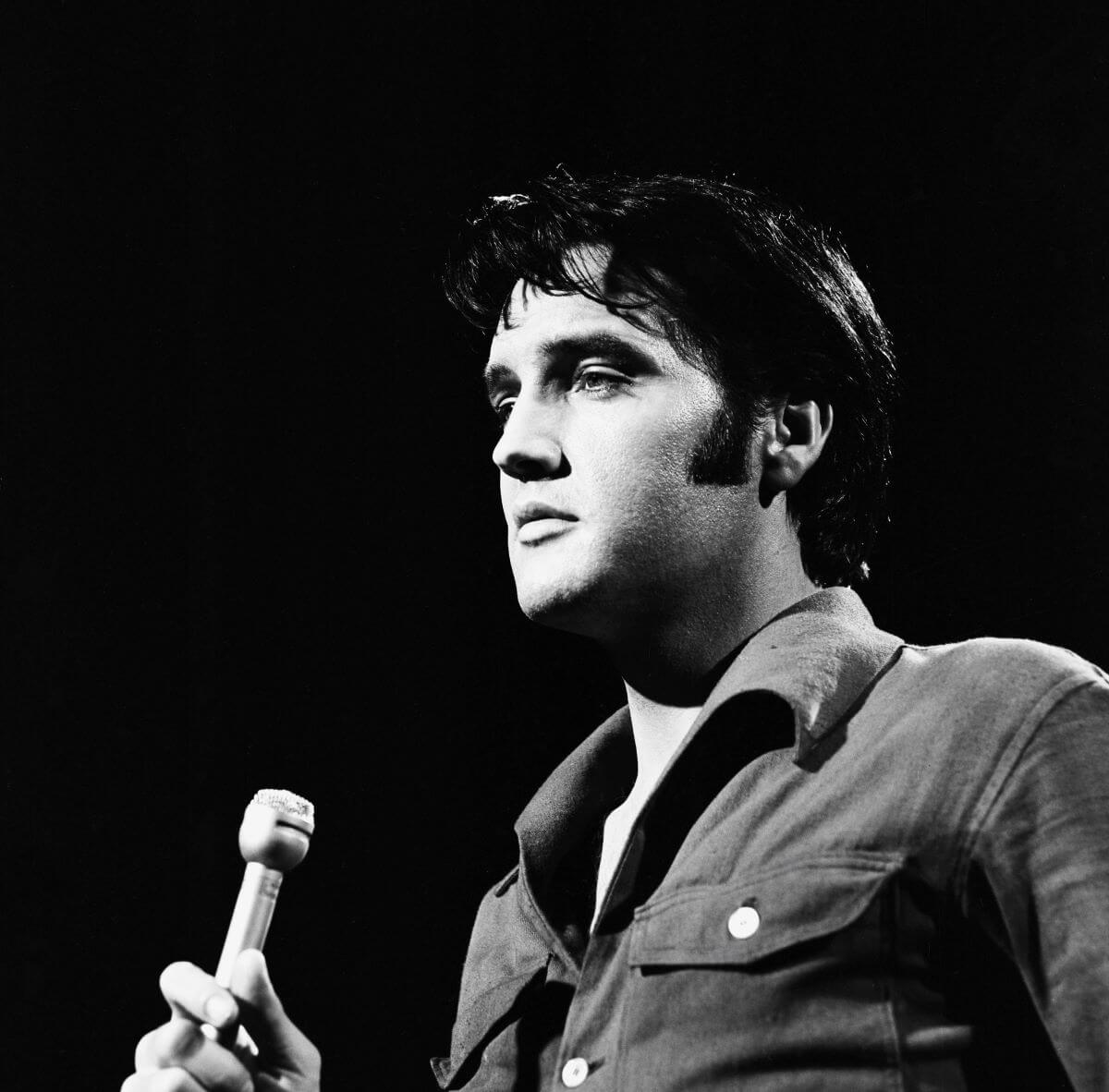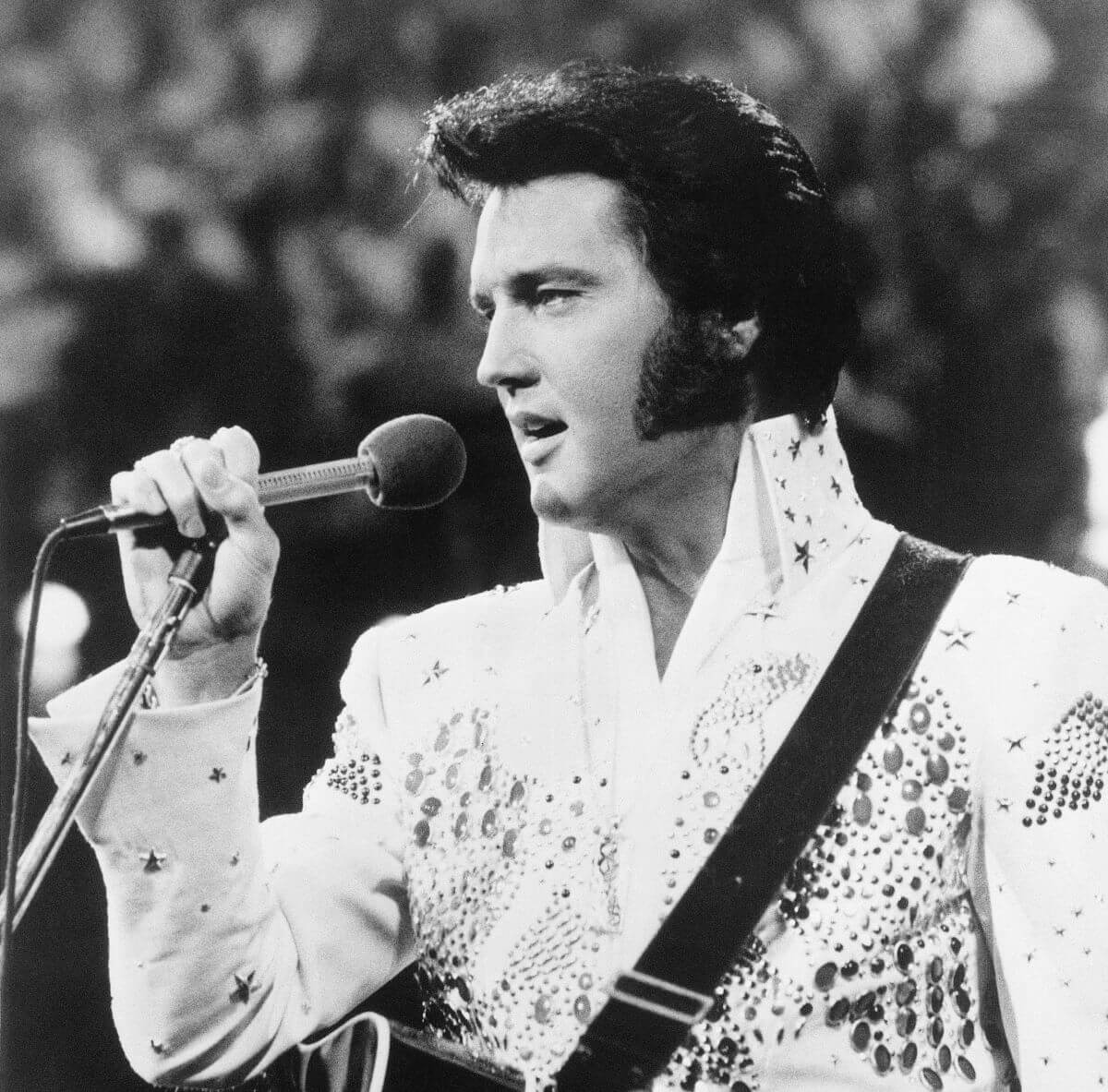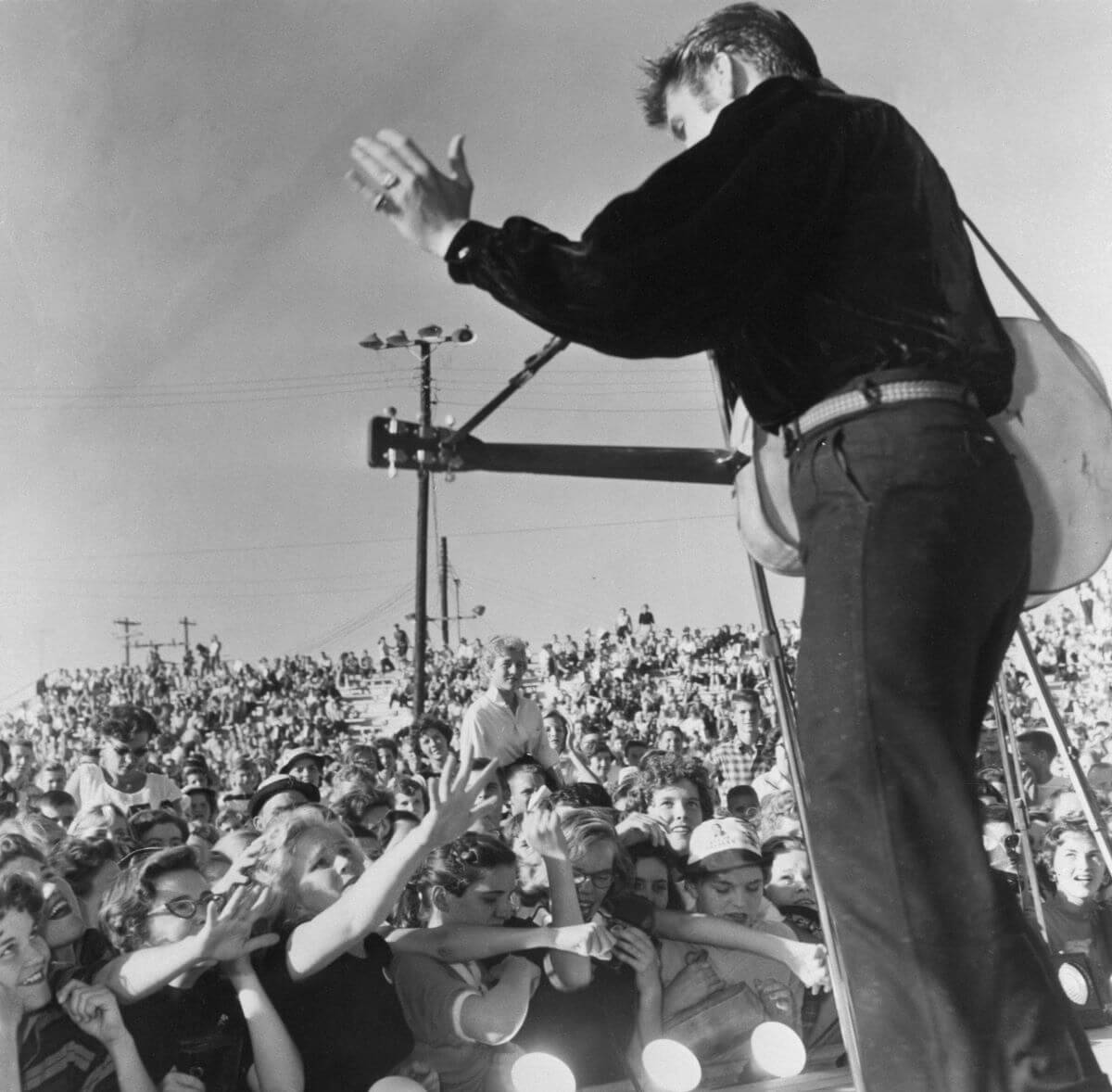
A Weepy Elvis Considered Giving Up His Singing Career in the 1970s
Elvis Presley’s singing career brought him wealth, fame, and a powerful legacy. Towards the end of his life, he considered giving all of this up. Feeling bored and dissatisfied with his work, Elvis turned to a televangelist for guidance. He wondered if he should search for a new purpose in life.
Elvis wasn’t sure he should continue on with his singing career
In the mid-1970s, Elvis had grown visibly bored with the direction of his career. During one Las Vegas show, he told the audience he hated the city. In another, he turned to his band and “mouthed the words, ‘Only one more night here,’ and made a face as if he were about to throw up,” a fan noted, per the book Careless Love: The Unmaking of Elvis Presley by Peter Guralnick.

He had played the same show night after night in Las Vegas for years and the lack of professional challenge was bothering him. When televangelist Rex Humbard visited Elvis after a show, he asked the minister if he should “give up singing and devote himself to the Lord.” Humbard told him that he was doing the Lord’s work by bringing his music to people. While this seemed to comfort Elvis, he still seemed concerned.
“I took both his hands in mine [and] said, ‘Elvis, right now I want to pray for you,’” Humbard said. “He said, ‘Please do,’ and started weeping.”
Elvis grew bored of his singing career
Elvis’ frustration with his career brought other emotions out of him. While he sometimes felt worried and vulnerable, his boredom also caused him to lash out at those around him.
“Going in about the third year, there was no challenge,” Elvis’ friend Jerry Schilling said in the book The Colonel by Alanna Nash. “It was the same songs, and the same audience, and we stayed up all night, and slept all day. We didn’t see sunlight for a couple months. What was once exciting and fun became dark and angry.”
Las Vegas, which had once excited and revitalized him, became a city he resented. He felt trapped.
“Elvis was mad,” his friend Lamar Fike said. “He didn’t want to do it anymore. He said, ‘I want out of this place. I don’t want to come back.’ As a result, this seething cauldron of hate built up in Las Vegas.”
He once confided in a minister about his discomfort with fame
Years before Elvis turned to Humbard for guidance, he sought comfort from his minister. His career began taking off in 1956, bringing him an influx of fans and attention. While he appreciated his success, fame frightened him.

“I am the most miserable young man you have ever seen,” Elvis told his minister, Reverend James Hamill.
Elvis grew up in a religious household, so he turned to religious leaders when he felt lost. He searched for meaning through spirituality all through his life.


